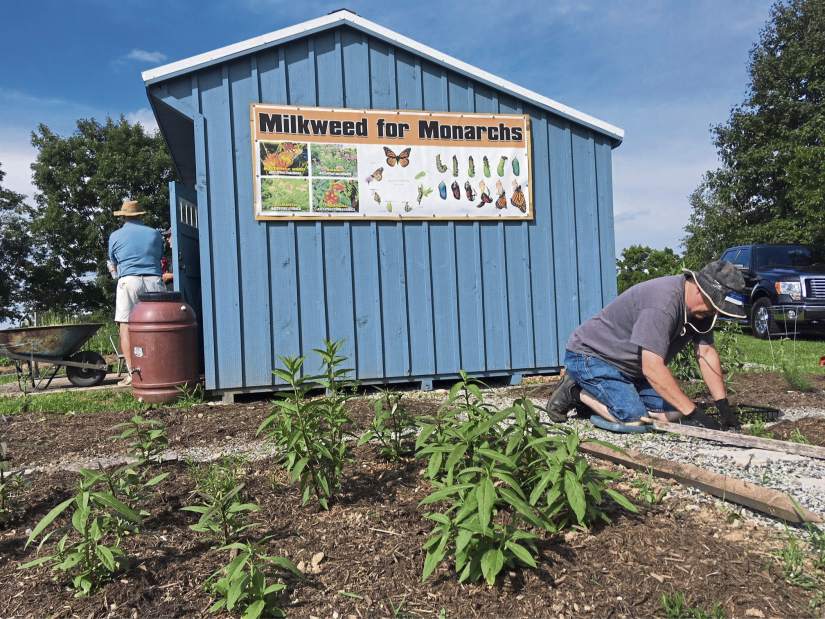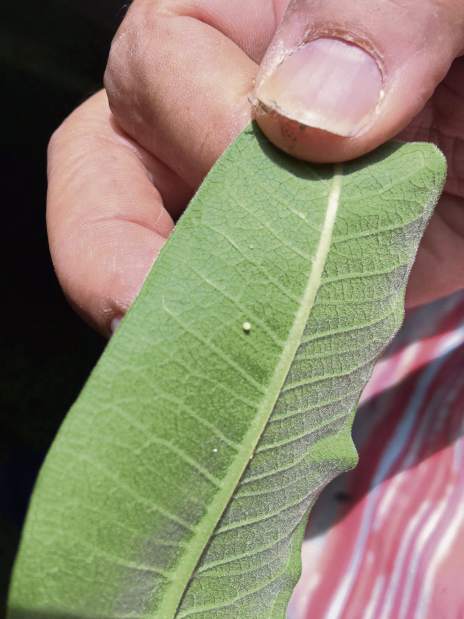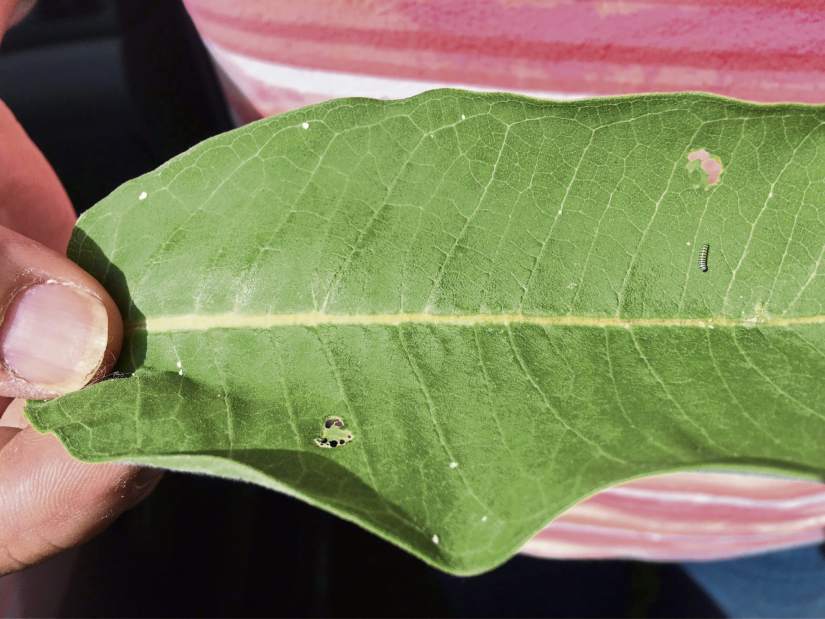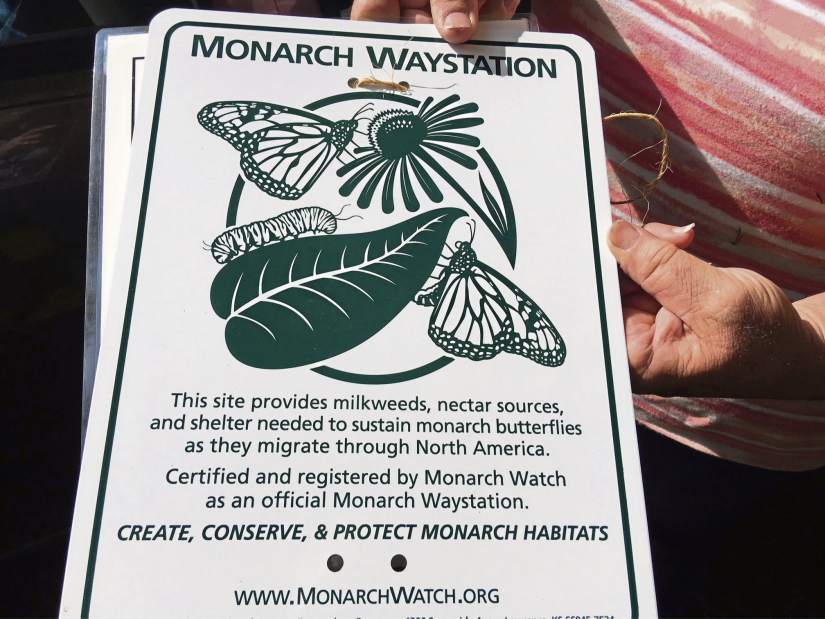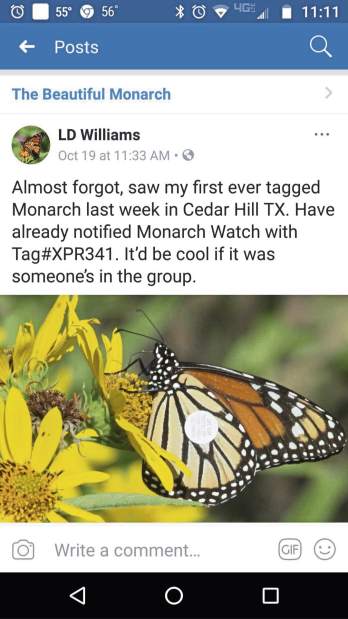Westmoreland master gardener working to save the monarch butterfly population
Jacqueline “Jackie” Hochard remembers a time when she was younger when monarch butterflies were plentiful in Western Pennsylvania.
Then one day it hit her: “You just don't see them as much as you used to.”
According to some estimates, monarchs in the United States have declined by 80 percent in the last 20 years, making the distinctive orange-and-black butterfly a candidate for the endangered species list, she said.
Hochard, a Penn State Extension master gardener , is doing her part to reverse the loss of habitat that is one of the biggest threats to a flourishing monarch population.
At the Penn State Extension demonstration garden on Donohoe Road, Hempfield, she recently helped plant a milkweed garden designed to attract nesting monarchs. She also is encouraging more people to plant their own monarch way stations, no matter where they live.
“It's very easy to incorporate milkweed into your garden, and that's what they need to lay the eggs,” she said. “Way stations are a way to replenish the milkweed. Every little bit helps.”
For those concerned with common milkweed taking over their garden, there's also swamp milkweed, butterfly milkweed and poke milkweed, she said.
“Some people make a plot where they don't mind having common milkweed spread freely. The way station application goes from small gardens to colossal public spaces,” she said.
Hochard maintains milkweed gardens at her home in Irwin and at where she works in Jeannette. Last summer, her home way station attracted 50 to 100 butterflies. The more she learns about monarchs, the more she wants to do.
“I'm trying to educate people that a little bit of milkweed does a lot of good,” she said.
Monarchs lay their eggs on the underside of the milkweed leaf. The egg takes three to four days to hatch, at which point the tiny caterpillar feeds on the leaf and grows until it reaches the pupa stage, Hochard said.
Adult butterflies emerge from the chrysalis in about 12 to 14 days. While reproductive monarchs live two to five weeks, migratory monarchs born between late August and early October can live up to nine months, she said.
It is that last generation of monarchs that migrates to central Mexico each year — what Hochard called “an incredible journey.” They spend the winter there and then return to the Southern states in the spring to reproduce and die.
The monarchs usually return to Western Pennsylvania in June.
“Everybody who raises them is happy to see them,” she said.
Master gardener Charlie Newhard, 66, of North Huntingdon, raised and tagged 200 monarchs in captivity last year and was thrilled to learn that one of them made it as far as Cedar Hill, Texas, a suburb of Dallas.
A picture of Newhard's butterfly was posted to the Facebook group, the Beautiful Monarch, and Hochard was able to identify it by checking the tag number against Newhard's tagging records.
A female, the butterfly was released Sept. 3, 2017, and identified more than 1,000 miles away on Oct. 19, he said.
The woman who posted the picture later told Hochard that her family had connections to Jeannette. She could not be reached for comment.
“To find out it made it that far, it was something,” Newhard said. “I was really surprised because it's rare that you ever hear about the ones you've raised.”
Monarch way station applications can be obtained through MonarchWatch.org .
Stephen Huba is a Tribune-Review staff writer. Reach him at 724-850-1280, shuba@tribweb.com or via Twitter @shuba_trib.

